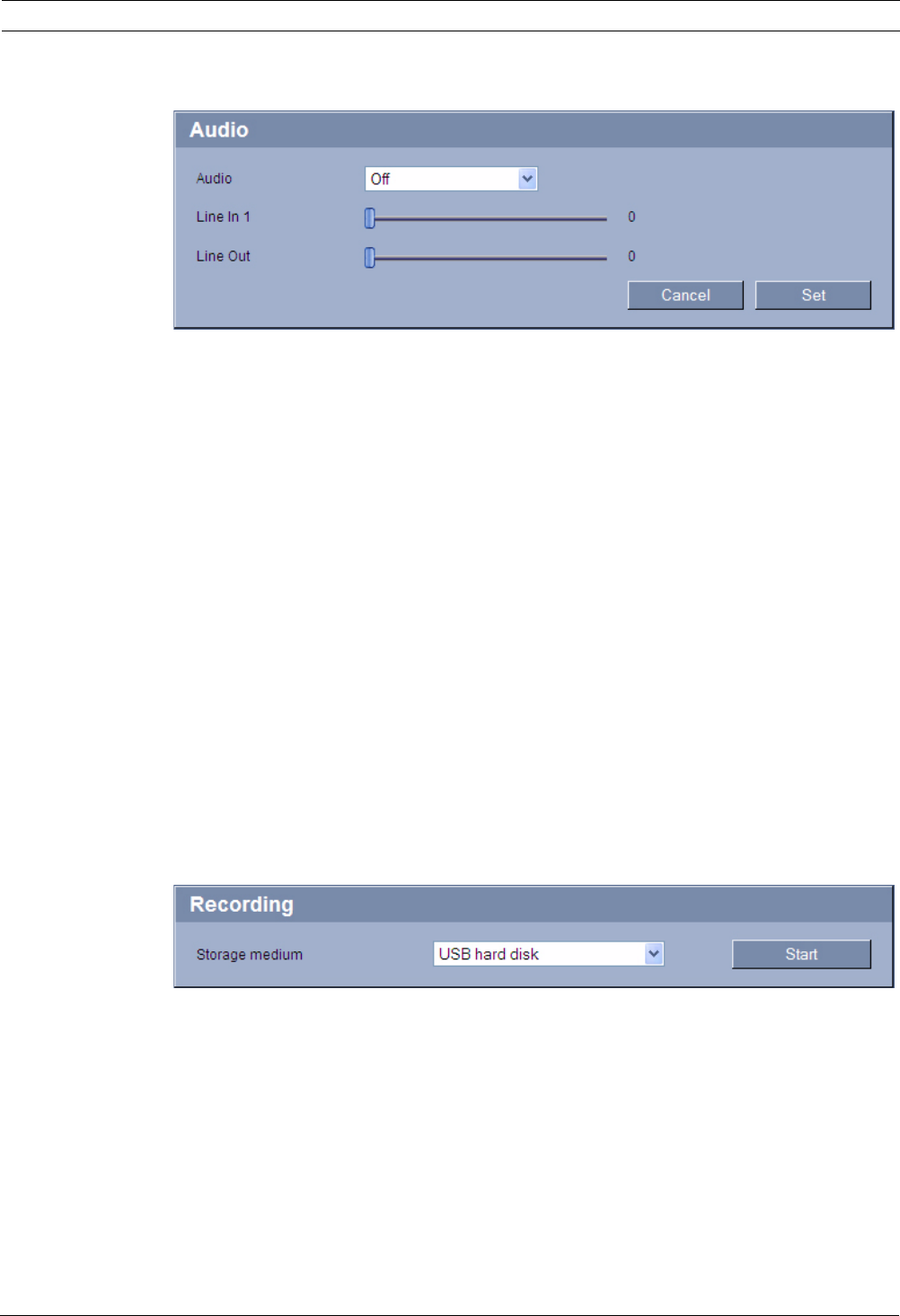
VideoJet X10 SN Configuration Using a Web Browser | en 35
Bosch Security Systems Installation and Operating Manual DOC | V4.0 | 2009.06
5.7 Basic Mode: Audio
You can set the gain of the audio signals to suit your specific requirements. The current video
image is shown in the small window next to the slide controls to help you check the audio
source and improve assignments. Your changes are effective immediately.
If you connect via Web browser, you must activate the audio transmission on the LIVEPAGE
Functions page (see Section 5.15 Advanced Mode: LIVEPAGE Functions, page 42). For other
connections, the transmission depends on the audio settings of the respective system.
Audio
The audio signals are sent in a separate data stream parallel to the video data, and so increase
the network load. The audio data are encoded according to G.711 and require an additional
bandwidth of approx. 80 kbps for each connection. If you do not want any audio data to be
transmitted, select Off.
Line In 1
You can set the line input gain. Make sure that the display does not go beyond the green zone
during modulation.
Line Out
You can set the line output gain. Make sure that the display does not go beyond the green
zone during modulation.
5.8 Basic Mode: Recording
You can record the images from the camera connected to the VideoJet X10 SN on various
local storage media or on an appropriately configured iSCSI system.
CF cards (see Section CF Slot, page 20) are the ideal solution for shorter storage times.
if the VideoJet X10 SN has a USB hard drive, this is suitable for longer, local recordings.
For long-term, authoritative images, it is essential that you use an appropriately sized iSCSI
system.
Here you can select a storage medium and immediately start or stop the recording.
Storage medium
1. Select the required storage medium from the list.
2. Click the Start button to start the recording immediately.


















